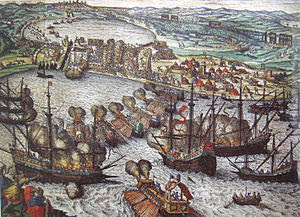
![]()
![]()
Spain used gold from South America's Inca Empire to defend Europe against invasion from the Islamic Ottoman Sultan.
In 1535, Spain's "Iron Duke," the Grand Duke of Alba, defeated the Ottomans and recaptured Tunis, North Africa.
Though this Spanish victory helped save the western Mediterranean, it backfired for eastern Europe, as it resulted in the Sultan making a permanent partnership with France in 1536 -- the Franco-Ottoman Alliance -- which enabled the Sultan to invade Hungary.
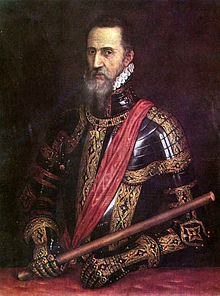
Meanwhile, Spain's Iron Duke turned his attention to crush the Protestant Reformation in the Netherlands, massacring tens of thousands in what is referred to as the "Spanish Fury," 1572-1576.
The Iron Duke decimated the Dutch cities of:
- Mechelen,
- Diest,
- Roermond,
- Guelders,
- Zutphen,
- Naarden, and
- Haarlem.
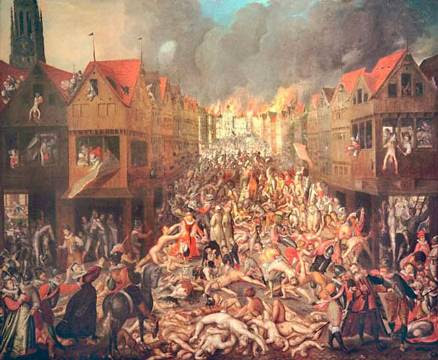
In 1585, Spanish troops finally conquered the Dutch city of Antwerp, considered at the time as the most important port in the world.
To be free of Spain, seven provinces of the Netherlands united and fought an 80 year war of independence, led by William of Orange.
England's Queen Elizabeth the First aided the Netherlands by sending English soldiers.
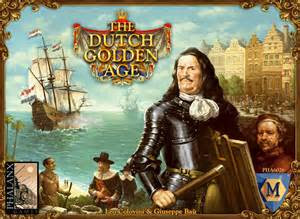
The Dutch Republic of the Seven United Netherlands grew to become the foremost maritime and economic power in the world.
The Netherlands' War for Independence from Spain coincided with the Dutch-Portuguese War, which lasted from 1601 to 1661.
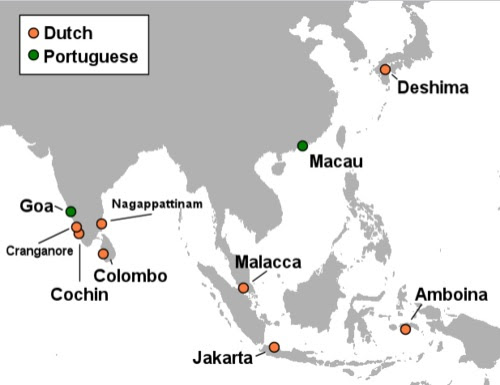
The Dutch fought battles against the Portuguese in:
- Atlantic Ocean;
- Brazil;
- West Africa;
- Southern Africa;
- Indian Ocean;
- East Africa;
- India;
- Burma;
- East Indies:
- Straits of Malacca; and
- Indochina.

The Dutch captured many Portuguese ports and colonies around the world, from: Recife, South America to South Africa to New Zealand, Asia, Jakarta, and Java. The Dutch had a monopoly on trade with Japan.

The Dutch gained control over Indonesia while the British gained control of India.
Where the English had established the Protestant Anglican faith as its official state religion, the Netherlands adopted the Calvinistic Protestant Dutch Reformed faith.
The Seven United Provinces of the Netherlands did not agree on all religious points, but were willing to work together against Spain. This resulted in the Netherlands being the most tolerant area in all of Europe, extending freedom to:
- Protestant Separatists,
- Anabaptists
- Catholics
- Remonstrants,
- Renaissance Humanists, and
- Jews.
- writer Jan Amos Comenius;
- astronomer Christiaan Huygens;
- scientist Anton van Leeuwenhoek;
- engineer Jan Leeghwater;
- playwright Joost van den Vondel;
- international lawyer Hugo Grotius;
- philosophers René Descartes, Pierre Bayle, Spinoza; John Locke -- who fled from England to the Netherlands in 1683; and
- artists Johannes Vermeer, Jacob van Ruisdael, Frans Hals, and Rembrandt. Two centuries later, a Dutch Reformed minister turned painter was Vincent van Gogh.
The Dutch invented a way of financing their endeavors -- the Amsterdam Stock Exchange. It was the first modern stock market.
Common people could buy shares in companies, such as the Dutch EAST India Company - Verenigde Oost-Indische Compagnie - whose ships sailed to Indonesia or Japan.

For nearly 200 years, the Dutch East India Company was more profitable than all other countries' companies combined.
British companies differed from Dutch companies in that they were primarily financed only by royalty and wealthy investors, namely:
- East India Company, 1600–1858;
- Virginia Company of London, 1606-1624;
- Virginia Company of Plymouth, 1606-1624;
- Hudson's Bay Company, 1670-present;
- Royal African Company, 1672–1750.
When company ships returned filled with goods and spices, shareholders would be paid a profit or "dividend." In case a ship sank or was captured by pirates, the Dutch invented "insurance" companies.
The Dutch experienced the first stock market crash with the Tulip Mania of 1636-1637. Tulips imported from Turkey became so popular that a single tulip bulb's worth exploded to more than the average person's yearly salary.

Then, suddenly, the tulip mania stopped. The price of a tulip bulb dropped to one-hundredth of its value, plunging the country into an economic depression.



Other infamous speculation schemes that crashed were the Mississippi Bubble, 1718-1720, and the South Sea Bubble, 1719-1722.
According to Joseph Spence and Lord Radnor:
"When Sir Isaac Newton was asked about the continuance of the rising of South Sea stock ... He answered 'I can calculate the movement of the stars, but not the madness of men.'"
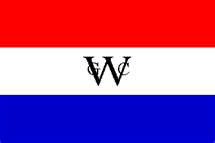
In 1621, the Dutch WEST India Company was founded. It sent Henry Hudson sailing west in hopes of finding a water route to India through North America.
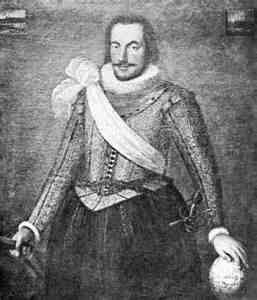
Though unsuccessful, Henry Hudson claimed the land along the "Hudson" River, and founded the New Netherlands Colony, receiving its charter June 3, 1621.
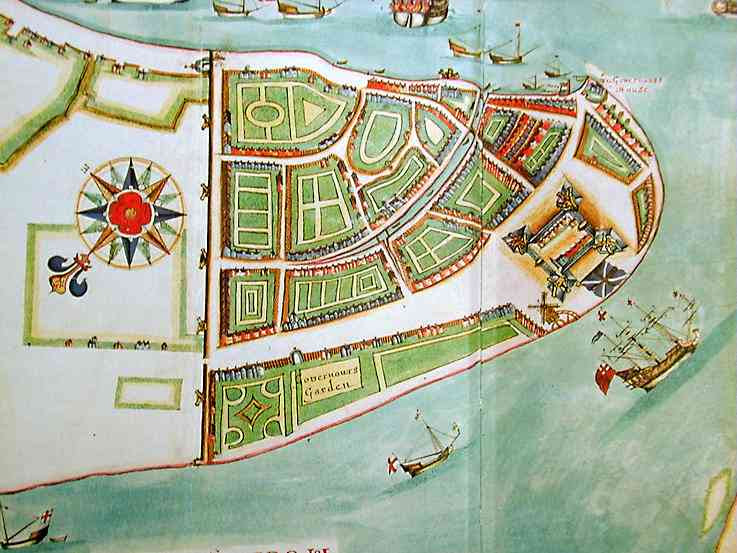
In its new settlement, the Dutch began a New Amsterdam Stock Exchange which met on the street next to the wall.

In 1624, the Chamber of Amsterdam wrote articles for the Dutch Colony, establishing the Dutch Reformed denomination:
"They shall within their territory practice no other form of divine worship than that of the Reformed religion ... and thus by their Christian life and conduct seek to draw the Indians and other blind people to the knowledge of God and His word, without, however, persecuting any on account of his faith, but leaving each one the use of his conscience."
The New Amsterdam Charter of Freedoms, June 7, 1629, gave land to wealthy "Patroons" who helped 50 families emigrate, stating:
"Colonists shall ... in the speediest manner ... find out ways and means whereby they may support a Minister and Schoolmaster, that thus the service of God and zeal for religion may not grow cool."
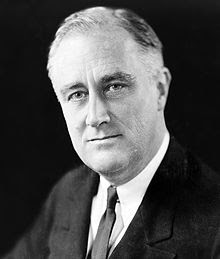
One Dutch family that immigrated was the Roosevelt family, as Franklin D. Roosevelt told the Detroit Jewish Chronicle, March 7, 1935:
"All I know about the origin of the Roosevelt family in this country is that all branches bearing the name are apparently descended from Claes Martenssen Van Roosevelt, who came from Holland sometime before 1648."
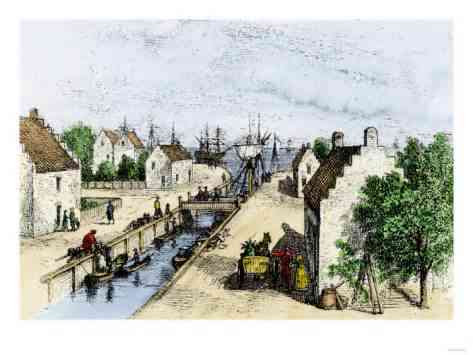
Beginning in 1639, Lutheran Germans, Swedes and Finns, as well as Anglicans from England, began immigrating, numbering 500 of the colony's 3,500 population in 1655.
Presbyterians erected their first meeting house on Eastern Long Island in 1640, and the first Jews arrived in the colony in 1654.
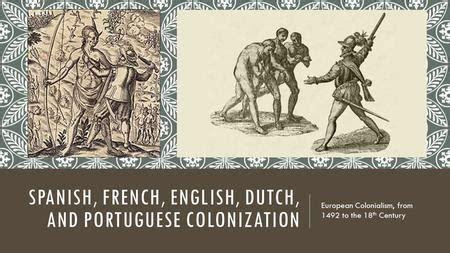
Spanish, Portuguese, English and Dutch all wanted to bring spices directly from the far east spice islands to Europe, cutting out the middleman - the Arabs and Asians who controlled the land routes and kept the location of the islands secret.
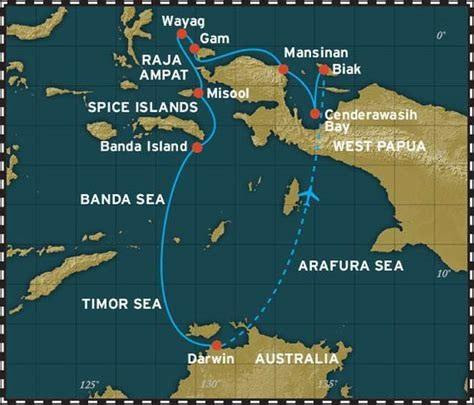
In 1599, the Dutch arrived first in Indonesia, forming the Dutch East India Company. Amidst the 17,000 islands was the Banda Sea, the only place in the world where nutmeg trees grew, as the tree needed a very specific tropical climate.

Nutmeg was sought after not only to flavor food, but was thought to cure the bubonic plague and other diseases.
The Dutch set up nutmeg tree plantations, and tragically, slayed or enslaved many of the local Bandanese population in the labor intensive cultivating and hand-picking of the fruit.

In 1616, the British merchants gained control of one tiny Banda Island called "Run." It was only a half mile wide and two miles long.
Forming the British East India Company, they quickly began to compete with the Dutch.
Four years later, the Dutch captured the island, though the British insisted on their claim to it.
Competition in the Far East was also over control of the trade of other profitable exports, such as:
- coffee,
- tea,
- sugar,
- indigo - blue dye, and
- opium.
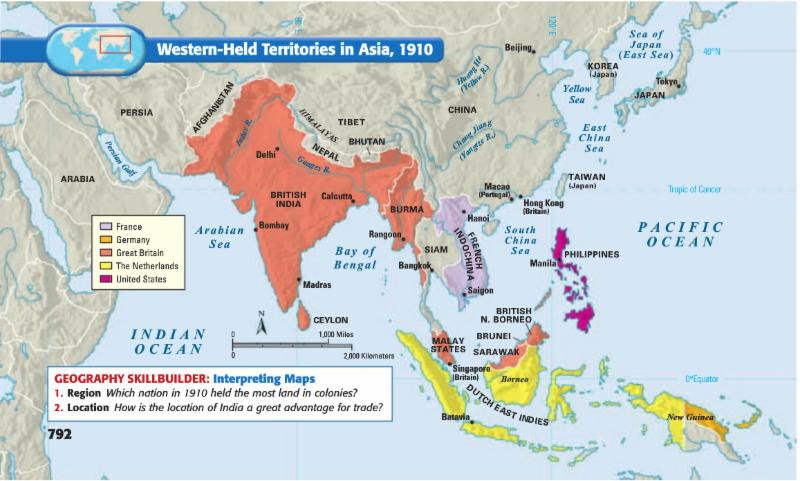
The Amboyna massacre occurred in 1623, between agents of the Dutch East India Company and agents of the English East India Company.



These tensions erupted into
- 1652-54, First Anglo-Dutch War;
- 1665-67, Second Anglo-Dutch War - a noted British naval officer of the First and Second Anglo-Dutch Wars was Admiral Sir William Penn, the father of Pennsylvania's founder;
- 1672-74, Third Anglo-Dutch War;
- 1672-78, Franco-Dutch War;
- 1701-14, War of the Spanish Succession;
- 1780-84, Fourth Anglo-Dutch War.
In retaliation to losing their tiny Banda island, the British, in 1664, sailed into the Dutch harbor of New Amsterdam. The Dutch inhabitants on the tip of Manhattan Island did not have the military power to resist, so they surrendered. The Dutch insisted on maintaining their claim to it.
In 1667, the English and the Dutch made the Breda Treaty. The British were willing to give up their claim to the small Banda island in exchange for the Dutch giving up their claim to Manhattan Island.
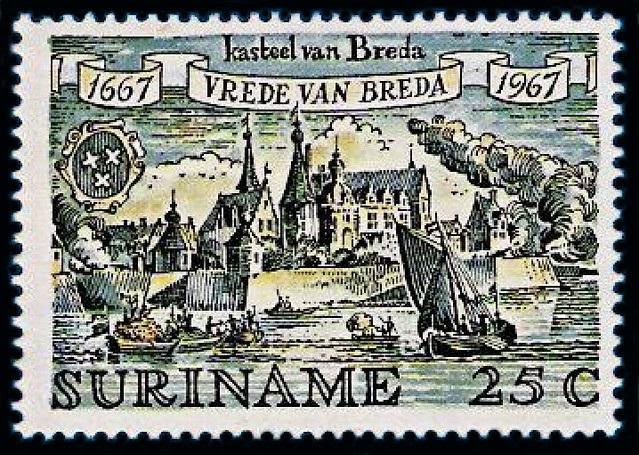
At one point during the negotiations, England offered to return New Amsterdam to the Dutch if the Dutch returned some sugar factories in Suriname on the north coast of South America. The Dutch refused. The Dutch eventually lost control of all of the 11 Bandese Islands and Dutch Suriname.
The British took control of New Amsterdam in 1664, and changed the colony's name to New York, after the Duke of York - who became England's future King James the Second in 1685.



New York would grow to become one of the most prosperous cities in the world. The New Amsterdam Stock Exchange became the New York Stock Exchange, referred to as Wall Street.
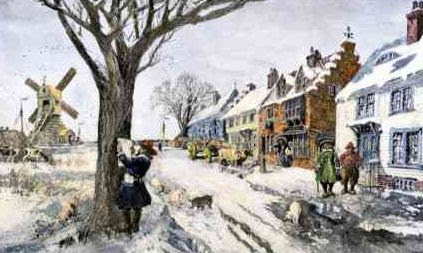
In New York, British continued the Dutch tradition of tolerance.
The New York Charter of Liberties and Privileges, paragraph 27, October 27, 1683:
"That no person or persons which profess faith in God by Jesus Christ shall at any time be any ways molested ... But that ... every such person ... fully enjoy his or their ... consciences in matters of religion ... not using this Liberty to Licentiousness."
"Licentiousness" is defined as contempt for restraints of law and morality; "promiscuous and unprincipled in sexual matters"; "sexual immorality."
New York's Charter of Liberties and Privileges continued:
"The respective Christian Churches now in practice within the City of New York .... shall ... enjoy ... freedoms of their Religion in Divine Worship and Church discipline."
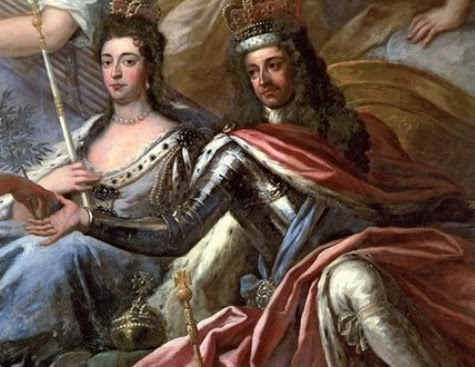
In 1688, the Dutch leader William III, Prince of Orange, drove King James the Second - Duke of York - out of England in the Glorious Revolution. He and his wife Mary, the daughter of James the Second, they ruled England as co-regents, William and Mary.
Though the British had "established" the Anglican Church in New York, other denominations were gradually allowed degrees of tolerance.
French Protestant Huguenots began arriving in New York in 1680.
The first Methodist meeting in the American Colonies was in New York City in 1766. In 1781, was the first mention of a public Catholic worship service in New York.
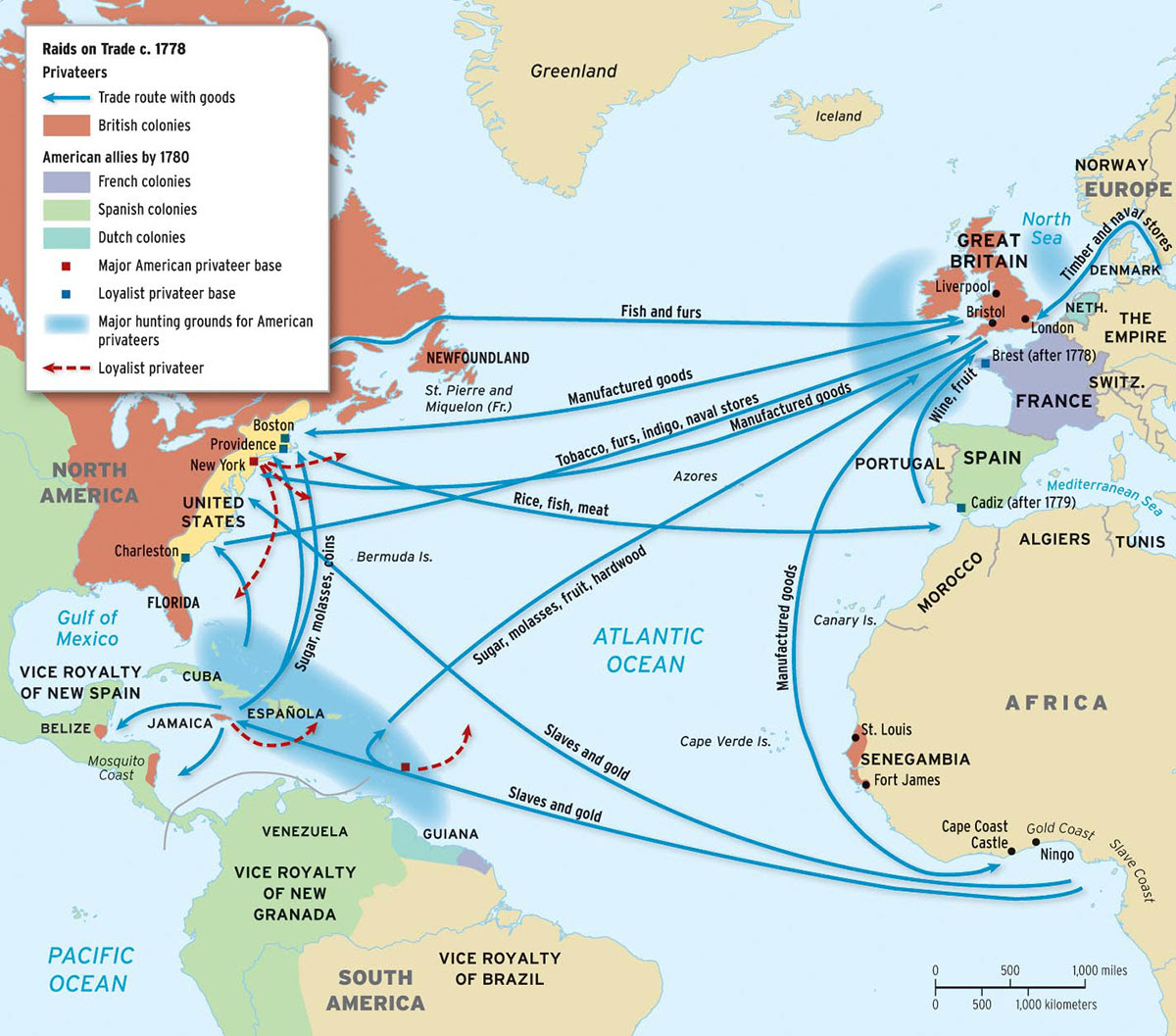
The Dutch sided with the Americans against Britain during the Revolutionary War, lending over 30 million guilders, and smuggling in much needed supplies through its Caribbean territories.
Though America won independence, the British continued to fight the Dutch in the Fourth Anglo-Dutch War. In 1784, the British forced the Dutch to give up all their possessions in India.
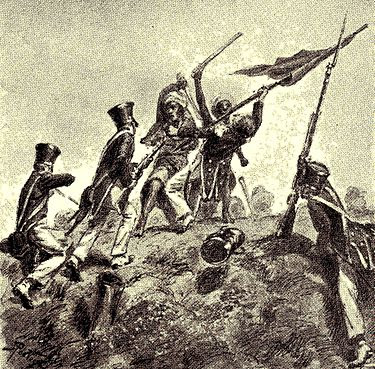
The Dutch still maintained power in Indonesia, but as early as 1804, Muslim pilgrims returning to Indonesia from Mecca combined hatred of foreign influences with militant Wahhabi sharia teachings. They were called "Padri," and their prominent leader was Tuanku Imam Bonjol.
As the Padir aggressively spread fundamental sharia Islam, many moderates fled to the Dutch for protection during the Padri War, which lasted from 1821 to 1838.
The Dutch tried to restore order by capturing terrorists and even using water-boarding to get them to give information of planned attacks.
They finally realized the plans were originating with radical imams who preached hate combined with the lustful rewards of paradise and the inhumane practices of Islamic sharia law.
When the imams were arrested, the incitement to commit violence ceased.
Supreme Court Justice Robert Jackson
wrote in the foreword of the book Law in the Middle East, 1955:
"Islamic law offers the American lawyer a study in dramatic contrasts. Even casual acquaintance and superficial knowledge ... reveal that its striking features relative to our law are not likenesses but inconsistencies, not similarities but contrarieties.
In its source, its scope and its sanctions, the law of the Middle East is the antithesis of Western law."
In New York's State Supreme Court's Chief Justice, Chancellor Kent, stated in the 1811 case of Peoples versus Ruggles:
"Christianity was parcel of the law ... that whatever strikes at the root of Christianity tends manifestly to the dissolution of civil government ...
The people of this State, in common with the people of this country, profess the general doctrines of Christianity ...
We are a Christian people, and the morality of the country is deeply engrafted upon Christianity, and not upon the doctrines or worship of those impostors."
Another aspect of Dutch Far East trade was the danger of volcanic eruptions.

- circa 1600 B.C., Minoan Eruption of Santorini - Thera - devastated Aegean civilizations of Akrotiri - possibly Atlantis - and Crete.
Chinese Bamboo Annals of the early Shang Dynasty. 1766-1122 B.C., described yellow skies and summer frost. Egypt's Tempest Stele of the 18th Dynasty, 1550-1292 B.C., described what possibly could have been the plagues of the Israelite Exodus.
- 79 A.D., Mount Vesuvius, near Pompeii, Italy, killing an estimated 30,000.
- 535 A.D., Ilopango Eruption in El Salvador and an Indonesian volcano - possibly a Krakatoa eruption - caused a global cooling, famine, starvation, the Plague of Justinian, and the collapse of civilizations worldwide.


In 1816, the Dutch navy joined the British navy, under the command of Sir Edward Pellew, in bombarding Algiers, forcing the Muslim Barbary state to release some 3,000 European prisoners.
Far East trade was interrupted again in 1883 when the volcano Krakatoa erupted on Java.
The blast was heard 3,000 miles away, being considered the world's loudest sound. Barometric instruments recorded the pressure wave circled the earth three and a half times.
As Krakatoa was near the sea, its eruption caused monstrous tsunami waves to reach over 150 feet high, killing 34,000. Ash devastated the world's climate for over a year. Los Angeles received so much rain, over 38 inches, that 1883 was called the "water year." A global cooling occurred with temperatures falling for five years.
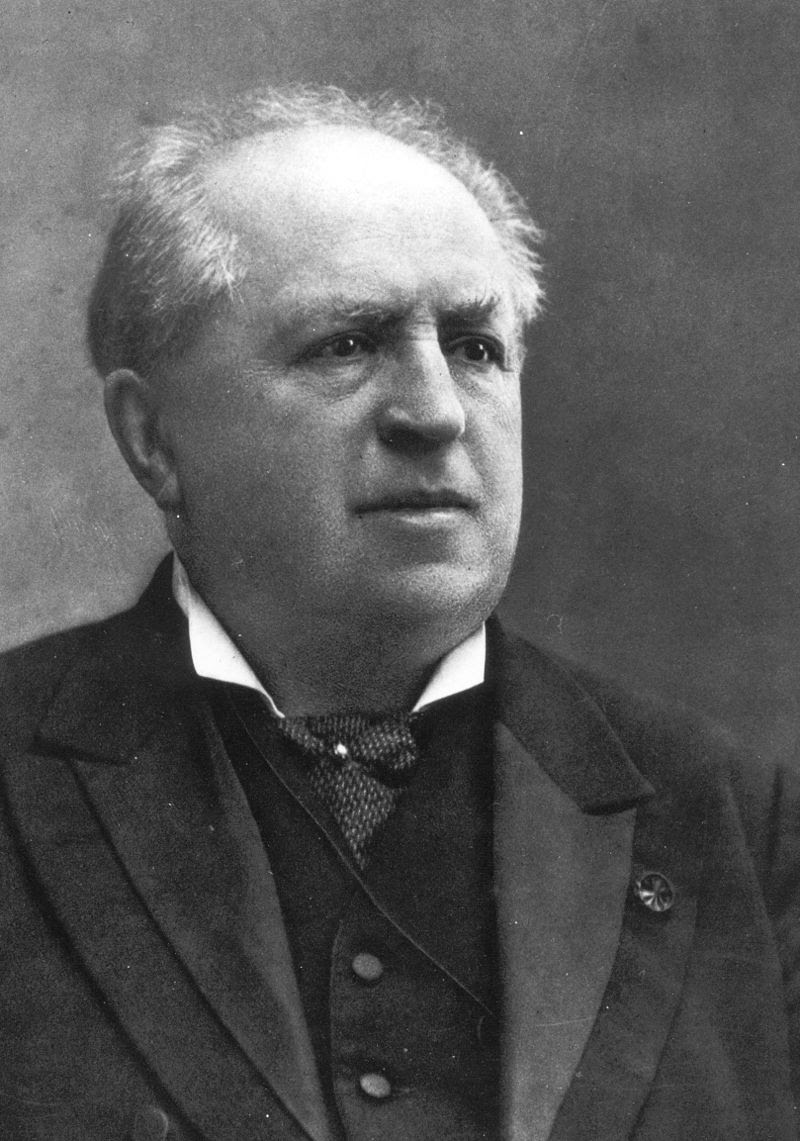
Dutch leaders gradually took an increased ethical position, advocating to improve the welfare of those in their colonies.
One such leader was Abraham Kuyper, who founded the Reformed Churches of the Netherlands in 1892, and in 1901 he was elected Prime Minister of the Netherlands.
Kuyper wrote pamphlets promoting the Dutch take moral responsibility for the people of Java, who were suffering from a famine.
Abraham Kuyper stated:
“There is not a square inch in the whole domain of our human existence over which Christ, who is Sovereign over all, does not cry, Mine!”
“Instead of monastic flight from the world the duty is now emphasized of serving God in the world, in every position in life.”
“When principles that run against your deepest convictions begin to win the day, then battle is your calling, and peace has become sin; you must, at the price of dearest peace, lay your convictions bare before friend and enemy, with all the fire of your faith.”
“The question is not if the candidate's heart is favorable to Christianity, but if he has Christ as his starting point even for politics, and will speak out His name!"
“Government cannot take the place of Christian charity. A loving embrace isn’t given with food stamps. The care of a community isn’t provided with government housing. The face of our Creator can’t be seen on a welfare voucher. What the poor need is not another government program; what they need is for Christians like me to honor our Savior.”
“He is your friend who pushes you nearer to God.”
In 1838, the New York State Legislature wrote:
"No people on the face of the globe are without a prevailing national religion ... With us it is wisely ordered that no one religion shall be established by law, but that all persons shall be left free in their choice and in their mode of worship ...
Still, this is a Christian nation. Ninety-nine hundredths, if not a larger proportion, of our whole population, believe in the general doctrines of the Christian religion.
Our Government depends for its being on the virtue of the people, - on that virtue that has its foundation in the morality of the Christian religion."
New York's State Constitution, 1846, 1894, and 1938, stated in its Preamble:
"We, the People of the State of New York, grateful to Almighty God for our freedom, in order to secure its blessings, do establish this Constitution."
--
American Minute is a registered trademark of William J. Federer. Permission granted to forward, reprint, or duplicate.








In a world where there is so much mantra of corrupted empirical history provided on a continuum for the public to be indoctrinated in, confusing the knowledge of reality to what and the events of times past, I am always amazed at the effort, and the conformation of historical facts your publications present.
I can only say that I am one who reads your presentation continually, and find it amazing that the insights you provide, open up history – to me – in a way that I can only be amazed how insightful your presentations fill in gaps of my knowledge that are empty. Thank you and keep up informing us the unwashed of the society.
Thanks,
Dan Short
Liberty cannot not exist if justice is not applied to all equally.